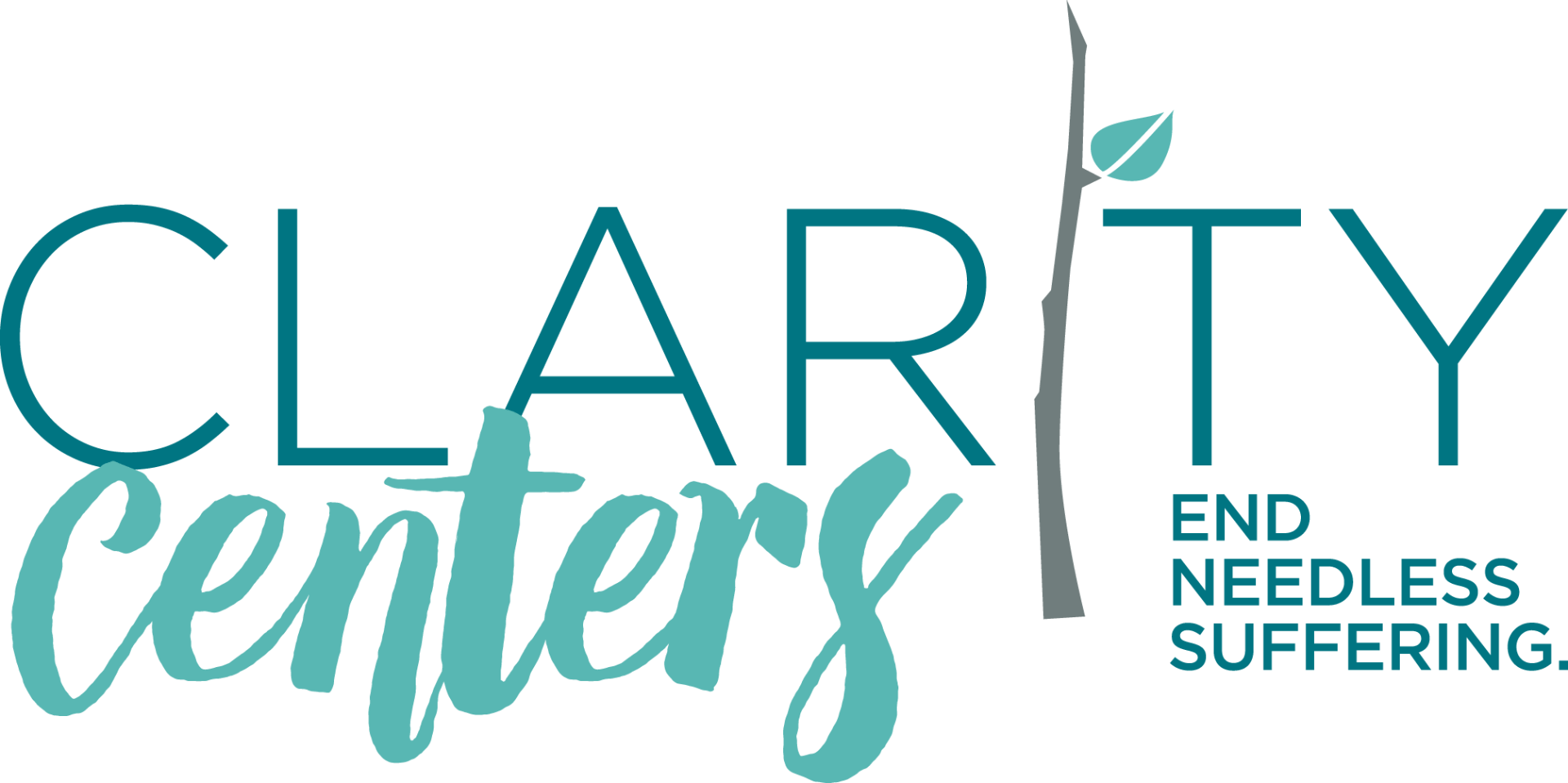Chronic Pain Counseling Treatment
Does your Chronic Pain create anxiety depression, fear or anger?
Does it affect your relationship with your family and friends?
Do you want to be able to do things you were once doing?
If you answered YES and you would like to start doing something about it then ask about the individual and group counseling services at Clarity Centers.
HEALTH COUNSELING CAN HELP YOU COPE!
Whether we like it or not, pain is a natural component of our alert system. We need it to help us know about injuries such as a sprained ankle or burned hand. Chronic pain, however, is much more complex. People often think of pain as primarily a physical sensation. However, if you t hink about it a bit more, you would realize that pain has biological, psychological and emotional factors. Also important to consider is that chronic pain can cause feelings such as anger, hopelessness, sadness and anxiety. This is why we at Clarity Centers believe that to treat pain effectively, you must address the physical, emotional and psychological aspects. We can work with your medical professional to support needed changes. Understanding and managing the thoughts, emotions and behaviors that accompany the discomfort can help you cope more effectively with your pain — and can actually reduce the intensity of your pain.
WHAT IS CHRONIC PAIN?
Patched Up Teddy Bear | Chronic Pain Therapy | Towson, MD 21204
Chronic pain is any type pain from whatever source that lasts longer than six months. Chronic pain can occur anywhere in the body, and can range from a mild irritation to a severely debilitating condition. Usually one’s daily routine and quality of life are significantly impacted. It may also be a risk factor for depression, anxiety, or insomnia. Chronic pain often occurs due to a physical health issue. As you might expect, conditions such as fibromyalgia, arthritis, and cancer can all cause chronic pain. Other causes include:
- Ulcers
- Poor posture
- Repetitive stress injuries
- Traumatic injuries
- Nerve damage or Neuropathic pain
If you suspect yourself or someone you know is struggling with the emotional impact of chronic pain, look for these:
- Symptoms of depression
- A history of painful traumas or events, including physical abuse, emotional abuse, sexual abuse, a bad accident, or a high
- level of past stress
- High present stress
- Anxiety
- A catastrophizing mindset — a belief that if things can go wrong, they will go wrong
TIPS FOR COPING WITH PAIN
Consider the following steps that can be helpful in changing habits and improving your sleep:
- Keep Active. Pain — and even the fear of pain — can lead people to stop doing the things they enjoy. It’s important for sufferers to not to let pain take over completely
- Know Limits. Assess what you can do honestly, and create a plan about how to manage your pain. Don’t push yourself to do more than you can handle.
- Exercise Regularly. Stay healthy with the types of low-impact exercise that are manageable for you. These might be stretching, yoga, walking and swimming.
- Be Social. Maintaining and creating social connections is super important. Call a family member, invite a friend to lunch or make a date for coffee with a pal you haven’t seen in a while. Research shows that people with greater social support are more resilient and experience less depression and anxiety.
- Distract Yourself. When pain seems to be all you can think about find ways to distract your mind from it. Watch a movie, take a walk, engage in a hobby. Pleasant experiences can help you cope with pain.
- Remain Hopeful. These treatments have a lot of research behind them. Other people have been where you are, and have found success. With the right kind of psychological treatments, many people learn to manage their pain and think of it in a different way.
- Follow Advice. If medications are part of your treatment plan, be sure to use them as prescribed by your physician to avoid possible dangerous side effects.
We at Clarity Centers understand that Chronic Pain is an all-too-familiar problem and the most common reason that people see their medical doctor. Unfortunately, making pain go away isn’t always a simple process. Numbers from the Institute of Medicine shows that at least 100 million adults in the United States suffer from all types of chronic pain. Even more surprising is that reporting from The American Academy of Pain Medicine suggests that chronic pain affects more Americans than diabetes, heart disease and cancer combined. If you are interested in learning more, reach out to our staff at 800-254-3926, or our appointment email: [email protected].
